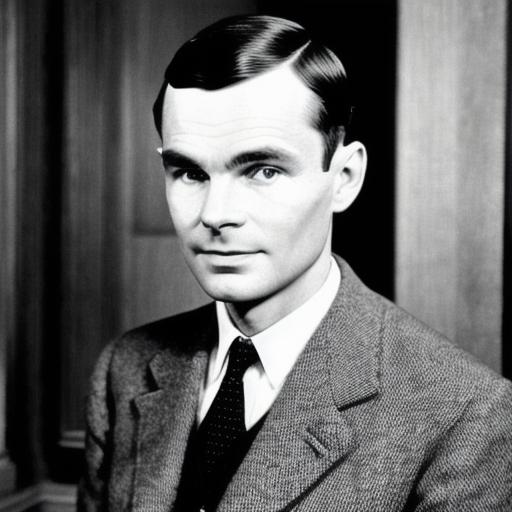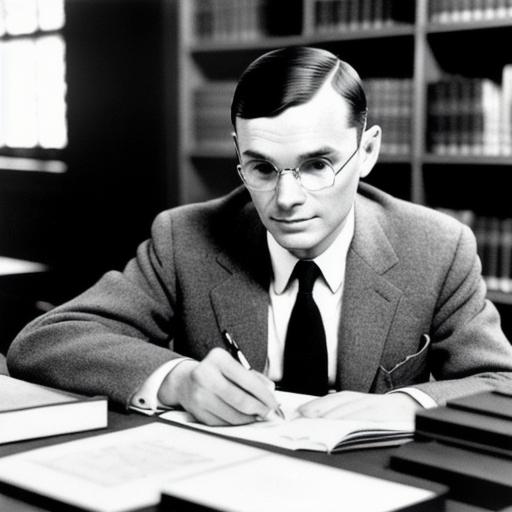Who is considered the father of software

Introduction
Alan Turing is often hailed as the father of software, and his contributions to the field of computer science have had a profound impact on modern computing as we know it today. Born in London in 1912, Turing showed an early interest in mathematics and computing, and during World War II, he worked as a codebreaker for the British government, developing algorithms to break the codes used by German forces. In this article, we will delve into Turing’s life and contributions to software development, as well as his legacy and impact on modern technology.
Early Life and Education
Alan Turing was born in London in 1912, the son of a British civil servant and a Russian aristocrat. He grew up in Cambridge with his mother and stepfather, and he showed an early interest in mathematics and computing. When Turing was 16 years old, he won the prestigious Gold Medal in Mathematics at the University of Cambridge.
After completing his studies at Cambridge, Turing went on to work as a mathematician for the British government during World War II. He was part of a team of codebreakers who worked tirelessly to break the codes used by German forces. Turing’s work was instrumental in providing the Allies with valuable intelligence and helping them plan their strategy accordingly.
Contributions to Computer Science
After the war, Turing continued his work in computer science and made significant contributions to the field. In 1936, he published a paper called "On Computable Numbers," which laid the foundation for theoretical computer science. In this paper, Turing introduced the concept of a universal machine, which could be programmed to perform any computation that was possible on any other machine. This idea became known as the Turing Machine, and it remains a fundamental concept in computer science today.

Turing also made important contributions to the development of the first electronic computers, including the Colossus, which was used to break German codes during World War II. His work on the design of these early computers helped to establish the principles of modern computing, such as the use of binary code and the importance of hardware and software working together.
In addition to his work in computer science, Turing also made important contributions to the development of artificial intelligence and cryptography. He was a pioneer in the use of computers for cryptography, developing techniques that are still used today to secure online communications. He also introduced the concept of the Turing Test, which measures a machine’s ability to mimic human behavior.

Legacy
Alan Turing’s legacy in the field of computer science and software development is enormous. His ideas and contributions laid the groundwork for modern computing, and his work on the Turing Machine and the Colossus continue to influence computer science today. In addition to his technical achievements, Turing was also a pioneer in the use of computers for cryptography and artificial intelligence.
Turing’s impact on popular culture cannot be overstated. He has been portrayed in countless books, movies, and documentaries, and his life and work continue to inspire new generations of computer scientists and engineers. His ideas and principles have had a profound impact on our understanding of the nature of intelligence and consciousness.
Turing’s contribution to cryptography is particularly notable. He developed techniques for breaking codes that were widely used during World War II, and his work helped to establish the importance of secure communication in the digital age. His ideas on artificial intelligence continue to influence the development of machine learning and other advanced technologies.
Summary
Alan Turing is widely regarded as the father of software, and his contributions to the field of computer science are unparalleled. From his groundbreaking work on codebreaking during World War II to his pioneering work on the Turing Machine and the Colossus, Turing’s legacy continues to shape modern technology today. As we continue to develop new technologies and push the boundaries of what is possible with computers, we can only hope to live up to the high standards set by this remarkable man.
FAQs
1. Who was Alan Turing?
Alan Turing was a British mathematician and computer scientist who is widely regarded as the father of software. He made significant contributions to the field of computer science during World War II and after the war, including the development of algorithms to break codes used by German forces, the design of the first electronic computers, and the introduction of the Turing Test.
2. What was Alan Turing’s contribution to artificial intelligence?
Alan Turing was a pioneer in the use of computers for artificial intelligence and introduced the concept of the Turing Test, which measures a machine’s ability to mimic human behavior. His ideas and principles have had a profound impact on our understanding of the nature of intelligence and consciousness, and his work continues to influence the development of machine learning and other advanced technologies.
3. How did Alan Turing’s work on codebreaking during World War II contribute to the Allies’ victory?
Alan Turing’s work on codebreaking during World War II was a key factor in the Allies’ victory in the war. He developed algorithms that were able to break the codes used by German forces, which allowed the Allies to gain valuable intelligence and plan their strategy accordingly.